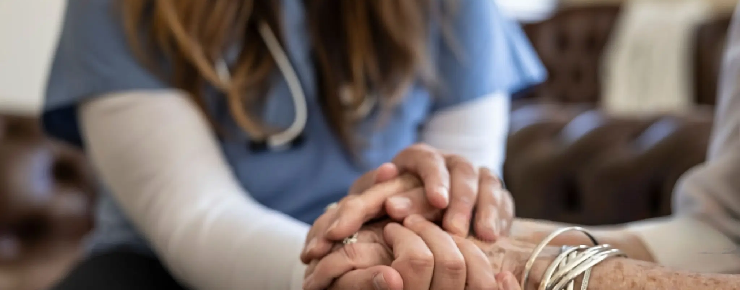Archives

As the age for senior citizens continues to rise, so does the importance of elderly care. Many older adults prefer to age gracefully in the comfort of their own homes rather than relocating to nursing homes or senior care facilities. This shift towards home-based care has highlighted the significance of hiring a nurse for old people. In this blog, we will delve into the various aspects of why the elderly need a nurse, what a nurse can do, the benefits of home nursing services, criteria for choosing a good nurse, and conclude on the importance of caring for the elderly at home.
Why do the elderly need a nurse?
Companionship: Loneliness and social isolation can have profound effects on the mental health of older adults. A nurse or caregiver provides more than just physical assistance; they offer companionship and emotional support. By engaging in meaningful conversations, listening attentively, and spending quality time with the elderly individual, caregivers help alleviate feelings of loneliness and isolation. This emotional connection also stimulates cognitive function, keeping the senior’s mind active and reducing the risk of cognitive decline. The compassionate presence of a caregiver significantly contributes to the overall emotional well-being of the senior, promoting a more positive outlook on life, thus emphasizing the importance of caring for the elderly at home.
What can the nurse do?
Benefits of hiring a nurse at home
Comfort and Familiarity: Aging in one’s own home provides a sense of comfort and familiarity, reducing the stress and anxiety often associated with transitioning to a nursing home or senior care facility.
Personalized Care: Home nursing services offer personalized care plans tailored to the specific needs of the elderly individual, ensuring that they receive the care and attention they require.
Criteria to choose a good nurse
In a world where the elderly population is increasing, the importance of caring for the elderly at home cannot be overstated. Hiring a nurse for old people offers numerous advantages, from medical assistance and emotional support to maintaining a sense of independence. By understanding the role of a nurse, the benefits of home nursing services, and the criteria for selecting a good nurse, we can ensure that our elderly loved ones receive the care they deserve in the comfort of their own homes. Ultimately, the decision to care for the elderly at home with the help of a dedicated nurse is a step toward honoring and cherishing the elderly population, ensuring they age with dignity and grace.
Other Services
Thyroid test at home
Error: Contact form not found.
You might also like
The Diagnostic Value of CT Scans
Lab test at Home Food Intolerance Doctor at Home Physio
The Vital Role of Vaccinations: Essential for All Ages
Lab test at Home Food Intolerance Doctor at Home Physio
Breastfeeding Awareness Week: Simple Tips for New Moms
Lab test at Home Food Intolerance Doctor at Home Physio

